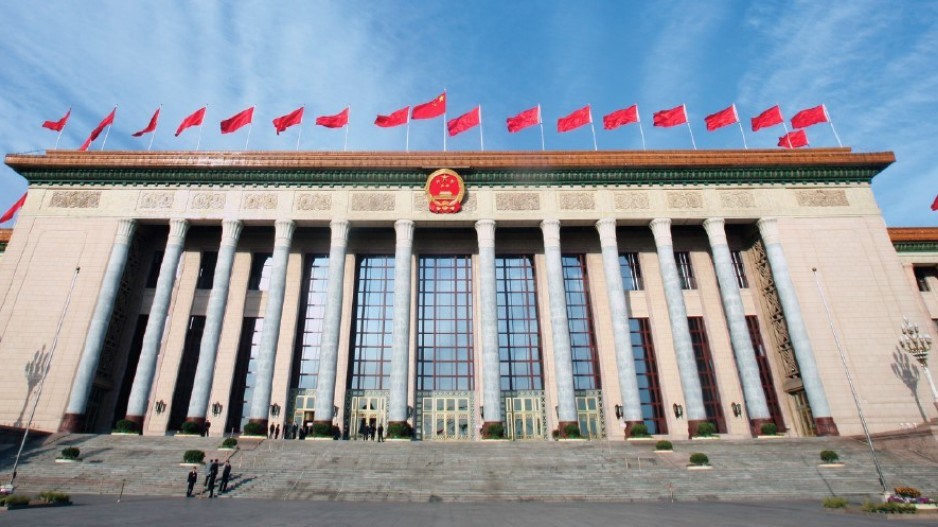A week after Vancouver-based Telus Corp. (TSX:T) and Montreal’s BCE Inc. (TSX:BCE) joined Rogers Communications Inc. (TSX:RCI.B) in shutting out 5G network equipment from Chinese telecom giant Huawei Technologies Co. Ltd., economic sanctions that had been widely expected from Beijing have not materialized.
Instead, China’s ire appears to be focused on Australia, where Beijing has banned agricultural imports and warned against travel to that country – measures that many were expecting to target Canada after Canadian telecoms’ snub of 5G tech and a ruling against Huawei CFO Meng Wanzhou in her bid to thwart her extradition to the U.S. a week earlier.
Simon Fraser University instructor and international lawyer Robert Adamson said that doesn’t mean a backlash isn’t coming. However, he noted that it may signal China’s recent run of “wolf warrior” diplomacy – characterized by aggressive rhetoric against countries deemed to have threatened China’s interests – is creating multiple fronts of rebuke globally.
“I think there are a number of different dynamics … that may be giving the Chinese government some pause,” said Adamson, who has more than two decades of experience working on projects in the Asian market. “In terms of its previous tactics, it has had numerous run-ins not just with Canada but with Australia, Sweden, Norway and South Korea. There was some blowback from African countries over the treatment of migrant workers in China during the pandemic…. These wolf warrior diplomatic pressure tactics may be backfiring.”
China’s sanctions against Australia included a ban of beef imports and added tariffs on barley. China accounts for more than 30% of Australia’s exports.
Earlier this month, Beijing also warned citizens and students not to travel to Australia due to what officials call increasing racist attacks on “Chinese and Asian people.”
The sanctions come as Canberra is backing an international inquiry into the origins of COVID-19, which is widely believed to have started in the central Chinese city of Wuhan. Beijing, however, is disputing that claim.
This month, in response to China’s announcement of new anti-Australian measures, former Canadian diplomat David Mulroney tweeted that the tactic – which also includes silence from Beijing in response to Australian trade officials reaching out after the ban – “is a Chinese classic.”
“It almost always works, which is why China does it,” the former Canadian ambassador to China said in his tweet. “Countries are so eager to get back in China’s good books that they fail to count the cost of their growing dependency.”
The moves come as favourable feelings among Canadians toward the Chinese government have fallen to new lows in light of the Meng Wanzhou affair, which resulted in two Canadian citizens – Michael Kovrig and Michael Spavor – being detained in China and facing espionage charges. An Angus Reid poll showed only 14% of Canadian adults in May held a positive view of Beijing, following trends in the United States (23% favourable) and Great Britain (22%), according to various polls.
Europe, meanwhile, appears to be shifting in the opposite direction. A recent poll by the Pew Research Center and Körber-Stiftung found more Germans wanting to prioritize relations with China (36%, up from 24% six months ago) versus the United States (37%, down from 50%). But even then, the European Union has marked Beijing as a “systematic rival” and “economic competitor” in policy documents while also creating initiatives to avoid using Huawei for their 5G networks.
Great Britain recently reversed course and started reconsidering the role of Huawei 5G equipment in its infrastructure. It proposed a “D10 club” of democratic nations – which would also include Canada, France, Germany, Italy, Japan, the United States, Australia, India and South Korea – to create alternative supply chains for 5G technology that would bypass China.
“There are already signs that many other countries are coming to the same conclusions about the best approach to dealing with China,” Adamson said. “The strategy, for many years, has been engagement – creating an economic environment for the Chinese government to participate and for the Chinese people to benefit. Recently, many countries are starting to re-evaluate in the face of [Beijing’s] pressure tactics…. I think there’s a recognition that the approach they have taken in the past decade hasn’t worked – and is being replied to by China not with diplomacy, but with sanctions.”
Adamson added that he would like to see Beijing re-evaluate its foreign policy. But he also noted that, even with 5G-related sanctions likely still coming from Beijing, Canada could learn from the Australian example in one important way.
“Perhaps I’m a little surprised by Australia taking this stance,” Adamson said, noting Canberra’s heavy reliance on trade with China.
“But a very good strategy for any government … is to be making policy based on principle. That doesn’t mean there won’t be economic consequences or you won’t factor in economic considerations, but if the principle is to ensure any [foreign] government is playing by the rules and following international law of being transparent with information relating to a pandemic, then you are on solid ground.”




